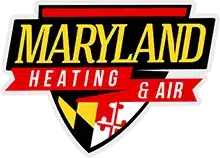In today’s world of rising energy costs and growing environmental concerns, upgrading to an energy-efficient HVAC system is no longer just a luxury—it’s a smart investment. These modern heating, ventilation, and air conditioning units are designed to deliver maximum comfort while using less energy, reducing utility bills, and minimizing your carbon footprint. Whether you’re a homeowner looking to cut expenses or a business aiming for sustainable operations, understanding the benefits of energy-efficient HVAC systems can help you make an informed, cost-effective decision.
In this blog, we’ll explore ten major benefits of choosing an energy-efficient HVAC system, helping you see the real value beyond the initial cost. Let’s dive in.
1. Lower Energy Bills
This is the most obvious and immediate benefit. Energy-efficient systems consume less power to perform the same tasks as older or less efficient models. Over time, that reduced energy consumption translates directly into lower monthly utility bills. These savings can add up significantly over the life of the system, especially if you live in areas with extreme temperatures that require constant heating and cooling.
2. Environmentally Friendly
Energy-efficient systems reduce your home’s carbon footprint. By consuming less electricity or fuel, these systems help conserve natural resources and lower greenhouse gas emissions. If sustainability matters to you, upgrading your HVAC setup is a meaningful way to contribute to a greener planet.
3. Enhanced Indoor Comfort
An energy-efficient system offers better temperature regulation. Modern HVAC designs often include features like programmable thermostats and variable-speed motors, which provide more precise control over indoor climates. This means fewer hot or cold spots and a more comfortable home overall—whether you’re trying to stay cozy in winter or cool in summer.
4. Quieter Operation
Older systems tend to rattle, buzz, or make loud startup noises. In contrast, energy-efficient models are engineered for quiet operation. They use advanced technology like sound-dampening insulation and high-efficiency compressors that keep noise levels low. If you value peace and quiet, this feature alone can make a huge difference in your everyday home experience.
5. Increased Property Value
Homes with modern, energy-efficient heating and cooling systems often attract more buyers and can even sell at a premium. Prospective homeowners look for updated, low-maintenance features that won’t require immediate replacement. Having a recently installed, energy-efficient HVAC system can make your home more appealing and market-ready.
6. Improved Air Quality
Good indoor air quality is vital to your health, especially if you or someone in your household suffers from allergies or respiratory issues. Energy-efficient systems are often paired with high-performance air filters and improved ventilation. Regular maintenance, including clean heating and ac ducts, further enhances air quality by removing dust, mold, and other contaminants.
7. Less Frequent Repairs
Modern energy-efficient systems are designed to be more durable and reliable. Their components are built with advanced materials and technologies that reduce wear and tear. As a result, homeowners often experience fewer breakdowns and malfunctions. That means less money spent to fix hvac problems and more peace of mind.
8. Smart Technology Integration
Many energy-efficient HVAC units are compatible with smart home systems. Features like Wi-Fi-enabled thermostats, real-time energy usage monitoring, and remote temperature control make it easier than ever to manage your home’s environment. These smart integrations can also learn your habits and preferences, automatically adjusting settings for optimal efficiency and comfort.
9. Extended System Lifespan
Since energy-efficient systems are built to operate with less strain, they tend to have longer lifespans than their older counterparts. Better component quality, smoother operation, and regular upkeep all contribute to a system that lasts longer—potentially saving thousands of dollars over time.
10. Potential Tax Credits and Rebates
Depending on your state or local utility provider, you might qualify for incentives when installing an energy-efficient HVAC unit. Tax credits, rebates, or low-interest financing can significantly reduce your out-of-pocket costs. It’s worth checking with local energy programs or your installer to see what incentives may be available in your area.
Final Thoughts
Switching to an energy-efficient heating and cooling system is more than just a smart financial move—it’s an upgrade in comfort, air quality, and environmental responsibility. Whether you’re in a bustling city or a quiet rural neighborhood, everyone benefits from reduced energy consumption and a healthier living space. Routine maintenance, such as making sure to clean duct systems, and promptly fix hvac issue concerns, ensures that your investment keeps performing at its best for years to come.
So, if your current setup is outdated or costing you more than it should, consider the long-term advantages of energy efficiency. The future of home comfort is not just about temperature—it’s about smart, sustainable living.
FAQs
1. What are energy-efficient HVAC systems?
Energy-efficient HVAC systems are heating, ventilation, and air conditioning units designed to consume less energy while maintaining optimal indoor comfort, reducing both costs and environmental impact.
2. Are energy-efficient HVAC systems worth the investment?
Yes. While the upfront cost may be higher, energy-efficient HVAC systems lower utility bills, require fewer repairs, and often qualify for rebates, making them a cost-effective choice over time.
3. How do I know if my current HVAC system is energy-efficient?
An HVAC contractor can perform an energy audit, check your unit’s SEER rating, and inspect its components to determine whether your system meets current efficiency standards.
4. Do energy-efficient HVAC systems require special maintenance?
They generally require the same maintenance as standard systems, but regular service from an HVAC contractor ensures peak efficiency, longer lifespan, and reduced breakdowns.


 855-410-TECH(8324)
855-410-TECH(8324) APPLY FOR FINANCING
APPLY FOR FINANCING